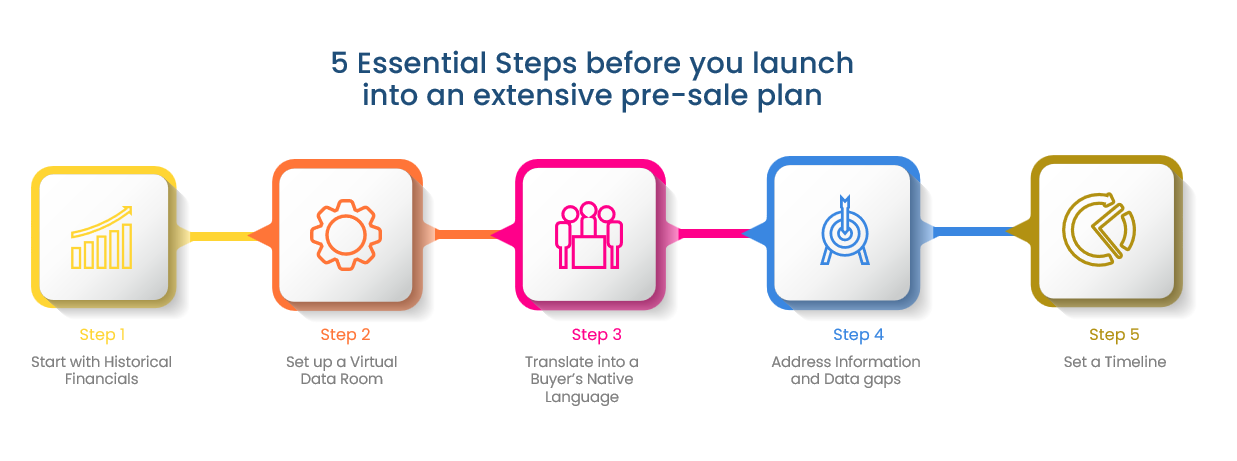The strategic value of accounting in business
Accounting is often perceived as a back-office necessity— primarily to manage cash flow and for regulatory purposes. However, this limited view can be costly. Misconceptions about the role of accounting can lead business leaders to neglect financial oversight, increasing their risk of cash flow and compliance issues. Beyond simply transactional record-keeping, accounting can provide valuable insights to highlight operational inefficiencies, drive business growth and stabilise long-term financials.
This article examines common misconceptions about accounting, challenging the belief that it is only relevant for large corporations or that profitable businesses can afford to deprioritise financial oversight. By tackling these five prevalent myths, we highlight how accounting is essential, regardless of the size, stage of growth, or priorities of the company.
Myth #1: “Accounting is mainly to track revenue and expenses”
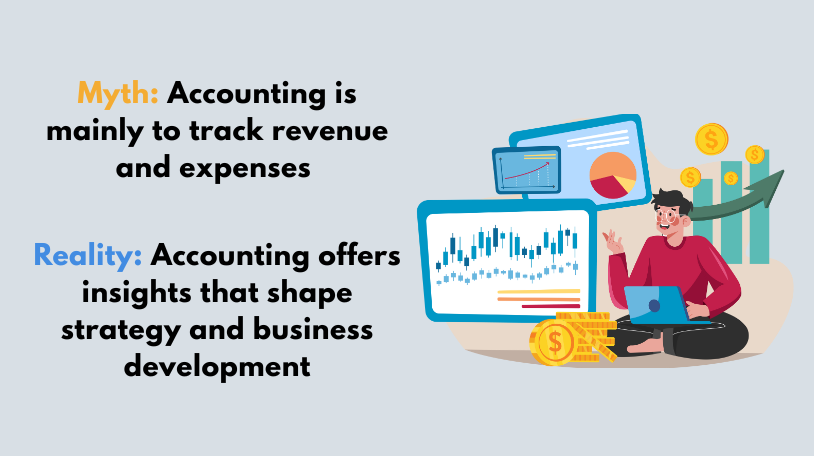
Accounting is more than an administrative function – it can provide insights to help businesses optimise costs, manage financial risks and identify potential opportunities. Many business owners believe that accounting is simply about tracking profits, managing payroll, and ensuring invoices are paid on time. While these are essential functions, accounting can serve a much broader role by uncovering key trends to drive business strategy and optimise resource allocation. Businesses that fail to use financial data beyond operational tasks may potentially miss out new areas of opportunities, cost savings and long-term financial gains.
Myth #2: “Businesses can thrive without focusing on accounting”
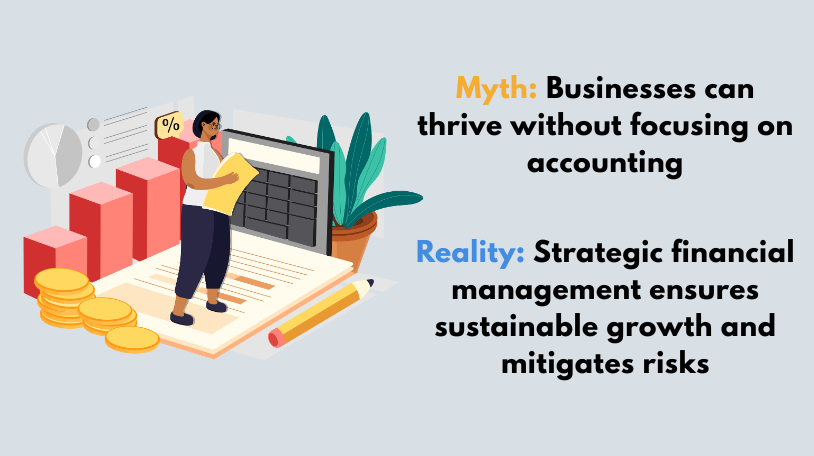
Many business leaders believe that marketing and product innovation are the primary drivers of success since they directly contribute to attracting new customers, increasing revenue and expanding market share. While these areas are essential for scaling a business, accounting is frequently seen as a secondary function – one that becomes relevant only when a company reaches a certain level of growth. However, this perspective can overlook the strategic role of accounting in providing the financial clarity needed to sustain growth. Without this layer of insight, businesses risk undermining their success, no matter how strong their marketing or innovation strategies may be.
Myth #3: “Accounting is only necessary for large corporations”
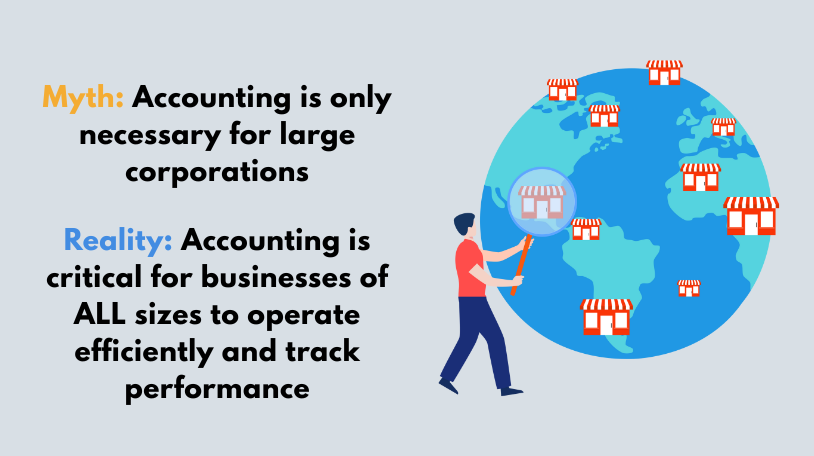
Accounting is crucial for businesses of all sizes, especially for startups and SMEs. Many entrepreneurs assume formal accounting is unnecessary in early stages of their business and manage their finances on their own. This belief can be risky and detrimental given that mismanagement and inadequate oversight can quickly destabilise a company. While accounting may not seem like a primary concern when businesses are focused on driving revenue or improving their business model, financial issues can stifle growth or lead to closure. Implementing robust accounting practices early on ensures that startups and SMEs have a clear financial picture, which is essential for making informed decisions and scaling their operations sustainably.
Myth #4: “Accounting software can replace professional accountants”
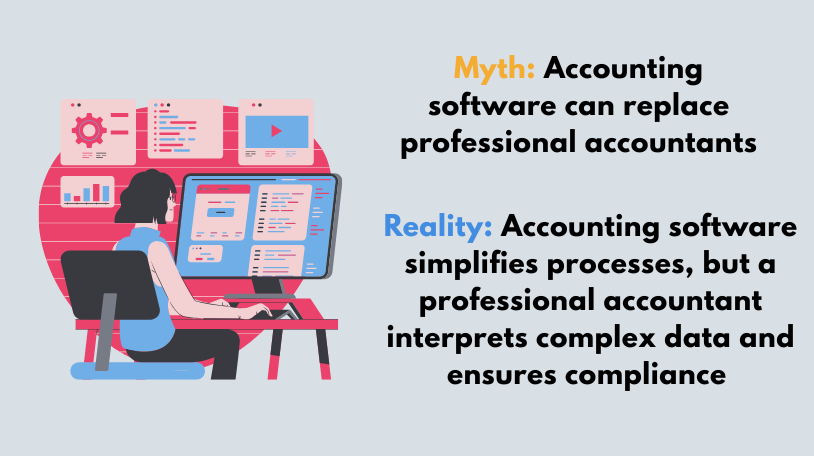
While technology and automation has significantly improved efficiency, it cannot fully replace the strategic analysis, financial forecasting and tailored advice that professional accountants provide. Accounting software can be used as tools, but it does not interpret financial data in the context of a company’s long-term goals, market conditions or specific regulatory environment. Technology is useful to streamline basic financial processes like invoicing, but human expertise is still valuable for strategic decision-making. Businesses that rely solely on accounting software may miss out on financial opportunities and overlook risks that require professional judgement. Sustainable growth comes from leveraging technology as a tool, ensuring that automation enhances – not replaces – strategic financial planning.
Myth #5: “A profitable business does not need to worry about accounting”
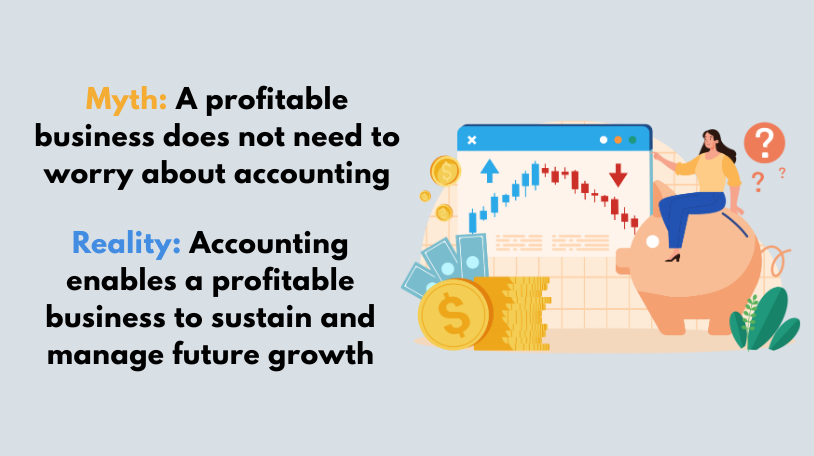
Another common misconception among business leaders is that once a business becomes profitable, it does not need to focus on accounting. Yet, profitability alone does not guarantee sustained financial health. Overlooking accounting in the pursuit of profitability can be a dangerous pitfall. While a business may thrive in the short-term, neglecting the nuances of financial management can lead to severe liquidity issues if cash flow is not properly managed. Instead, accounting can serve as a strategic tool to optimise operations, identify financial risks and make critical decisions to sustain profits over time. When businesses have poor financial oversight, it can derail future expansion and long-term viability.
Accounting: A competitive advantage in the business landscape
While it is easy to overlook accounting in favour of other business priorities, financial oversight plays a fundamental role in ensuring long-term success. In a dynamic and competitive landscape, business leaders that integrate accounting into strategic planning are better positioned to navigate risks, optimise resources and drive sustainable growth. The challenge is not simply managing finances but using them as a guide to shape forward-looking strategies.
To fully leverage accounting as a strategic asset, businesses should:
- Transform the Role of Accounting: Business leaders can foster a vision that positions accounting as a strategic advisory function within the company. This includes promoting collaboration between accounting and other departments to ensure that financial insights guide decision making across all levels of the business.
- Leverage Technology and Accounting Tools: Advanced technologies such as automation and artificial intelligence can significantly streamline accounting processes. By reducing time spent on routine tasks, it can allow accountants to focus on delivering strategic analysis and insights that drive business growth.
- Align Metrics with Business Goals: Ensure that financial metrics such as revenue and profitability are directly tied to broader business objectives. This alignment ensures businesses can adapt their strategies to changing market conditions and maintain growth.
Stay ahead with exclusive insights! Sign up for our mailing list and never miss an article. Be the first to discover inspiring stories, valuable insights and expert tips – straight to your inbox!




